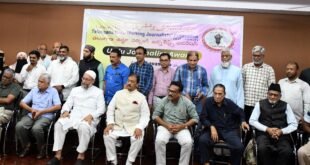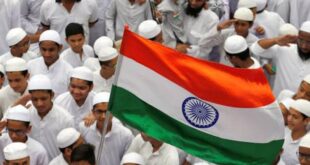By: Asad Mirza
At last the Supreme Court of India pronounced its verdict in the title case of Babri Masjid-Ram Mandir case in Ayodyha. The SC verdict put an end to the 82-years long legal battle to the ownership of the disputed site.
Though the verdict accepted many facts, which were ignored so far by the jurists, yet it gave no weightage to all those facts or evidences, and gave a unanimous decision in favour of Ram Lalla, a move which clearly reeks of a win for the majoritarianism currently prevailing in India.
Before the verdict was announced, everyone was wondering what form it would take, though conceding that it may go in favour of the Hindu community, as Justice Gogoi is due to retire shortly, and several more controversial and far out reaching cases are pending before the SC, on which it has to deliver the judgements.
To discern which way the air was flowing was not difficult, due to several instances; the manner in which the public was called upon to maintain peace and tranquillity, whatever be the decision, coupled with the fact that Hindu activists were also asked not to take ‘Vijay Yatras’ or victory processions, even before the verdict was pronounced, the manner in which efforts were being made to control the social media, and the scheduled press conference by the RSS chief, later in the day, after the judgement has been pronounced, all these were pointers to the colour of the verdict.
Palpably the largest minority community in the country was very much confused and alarmed by these developments. Just like 1992, when as a young man I heard the first news on the BBC, conforming that the right-wing Hindu activists have demolished the masjid. Though the same sense of déjà vu was not there, with a tiny hope that in the intervening 27 years must have given more maturity to our political leadership and a sense of boldness to our judiciary. Yet, however, all these hopes were belied as the verdict was read in the Supreme Court, today.
In 1992, the Muslims across the country were confident that in a democracy like India, nothing would happen to the Babri Masjid, and this time too similarly they had reposed their hopes in the highest court of the land, but alas both times their hopes were belied. Though then and now also the community was also concerned about their safety and the manner in which the majority community would celebrate its victory
Though to save itself from criticism of completely ignoring the claim of the Muslims, the court made some observations like that both the Nirmohi Akhara and Shia Waqf Board have no locus-standi on the Babri Masjid land, it also virtually ousted Ram Janamsthan Nyas from any future activities related to the temple, besides observing that the mosque was desecrated in 1949 after placement of the idols, destruction of the mosque in1992 was in breach of SC order, Muslims didn’t abandoned the mosque at any time, the account of travellers regarding the birthplace of Lord Ram is to be read with circumspection, maintaining that the faith and belief of Muslims to worship at the site is undisputed.
All the above were points, based on which a more mature judgement could have been drafted, but the SC chose to honour the faith and belief of the Hindu community, which clearly shows that ultimately the majoritarianism won in the country. The verdict has showed that whosoever be the ruling power, whether an autocratic one or a democratically established, the ruler could do whatsoever he or she desires to. It will also shape up the narrative for the future on how the majority community will interact with the minority community on what terms.
Now we have to wait to see, how much time the central government takes to set up the trust for the construction of the temple and in how much time it allots a non-controversial piece of land at an alterative site for the mosque. The way things are going, it may be the start of a new battle. To show its sincerity the government must allot an encroachment free and clear titled land to the Muslims, so they could start constructing the mosque immediately. I just pray that now the Muslims don’t start fighting over who should be entrusted to construct the mosque.
About the author:
Asad Mirza is a Sr journalist based in New Delhi. In his career spanning more than 20 years, he was also associated with BBC Urdu Service and Khaleej Times of Dubai. He writes on Muslims, educational and international affairs issues. Email: asad.mirza.nd@gmail.com
 Gawah (The Witness) – Hyderabad India Fearless By Birth, Pristine by Choice – First National Urdu Weekly From South India – Latest News, Breaking News, Special Stories, Interviews, Islamic, World, India, National News
Gawah (The Witness) – Hyderabad India Fearless By Birth, Pristine by Choice – First National Urdu Weekly From South India – Latest News, Breaking News, Special Stories, Interviews, Islamic, World, India, National News



